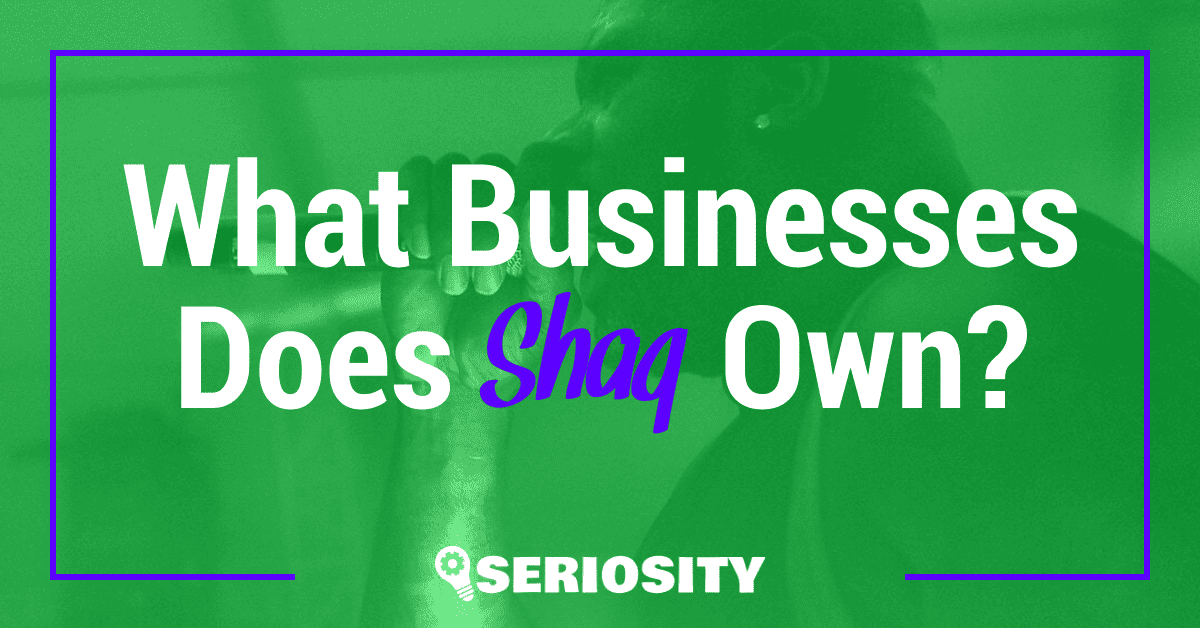Ever wondered who owns Apple, the tech giant that’s become a household name around the globe? It’s a question that sparks curiosity in the minds of many, from tech enthusiasts to everyday consumers. After all, it’s not just about the sleek devices, but the power and influence behind them.

Apple’s ownership isn’t as straightforward as you might think. It’s a story of innovation, investment, and intrigue, involving a wide array of shareholders, from individuals to massive institutional investors. Let’s dive into the fascinating world of Apple’s ownership and uncover the key players who hold the reigns of this tech empire.
Key Takeaways
- Apple’s history is marked by innovation, resilience, and strategic investments, beginning in a garage in 1976 and growing into a multi-trillion-dollar enterprise. This journey underscores the importance of vision, perseverance, and adaptability in achieving lasting success.
- The founding shareholders, Steve Jobs, Steve Wozniak, and Ronald Wayne, embarked on Apple’s journey with a combination of technical skills, administrative expertise, and visionary investment, demonstrating that starting and sustaining a successful company requires a multifaceted team approach.
- Key institutional investors like Vanguard Group, BlackRock, and Berkshire Hathaway play a pivotal role in Apple’s stability and strategic direction, owning significant shares that influence the company’s market dynamics and growth strategies.
- Individual shareholders, while owning a smaller portion of Apple compared to institutional giants, contribute to the company’s stock market dynamics through a diverse range of investment behaviors, highlighting the nuanced roles within Apple’s shareholder base.
- Understanding Apple’s ownership structure, from its early days to its current state with a mix of founding visionaries and influential institutional investors, provides valuable lessons for entrepreneurs and investors alike on the complexity and importance of strategic partnerships and investment strategies.
History of Apple
When you’re diving into the corporate world, understanding the origins of giant companies like Apple isn’t just fascinating; it’s practically a lesson in entrepreneurship and innovation. Imagine, if you will, starting a company in your garage and then watching it bloom into a multi-trillion-dollar enterprise. That’s exactly what happened with Apple.
It all began in 1976, when Steve Jobs, Steve Wozniak, and Ronald Wayne founded Apple Computer Co. in Jobs’ parents’ garage. Their first product, the Apple I, was followed by the Apple II, which was a massive success. It’s crazy to think about, but this was just the beginning of their journey into making Apple a household name. Fast forward a few years, and the introduction of the Macintosh in 1984 set the stage for personal computing as we know it.
But, as with any good story, the path wasn’t always smooth. The late ’80s and early ’90s were turbulent times for Apple, with leadership changes and competitive pressures. It wasn’t until Jobs returned to Apple in 1997 that the company began to reclaim its status as a leader in innovation. The launch of the iMac, iTunes, the iPod, iPhone, and iPad in the years that followed were not just products; they were cultural phenomena that changed how we interact with technology and each other.
What’s compelling about Apple’s history is not just the innovations it brought to the table but the resilience and adaptability it demonstrated. For you, as an entrepreneur or business enthusiast, there’s a goldmine of lessons here. From the importance of vision and leadership to the value of perseverance and adaptability—Apple’s journey is a testament to what it takes to build and sustain a business that leaves an indelible mark on the world.
As you’re exploring side hustles or working on your startup, think about Apple’s trajectory. Imagine the potential of starting small, dreaming big, and the impact of innovation.
Founding Shareholders
When you’re diving into the stories of massive corporations like Apple, it’s utterly fascinating to look back at the beginnings—where it all started and who were the masterminds pulling the strings. In Apple’s case, the original roster of shareholders wasn’t just a list of names; it was a testament to a shared vision and relentless pursuit of innovation.
Back in 1976, Steve Jobs, Steve Wozniak, and Ronald Wayne founded Apple with high hopes and limited resources. Jobs and Wozniak are well-known figures, credited with the vision and technical genius behind Apple, respectively. Ronald Wayne is less known but was crucial as he provided the legal and administrative backbone during the company’s infancy. Interestingly, Wayne sold his 10% stake in Apple for just $800—a decision he’d likely revisit in his thoughts more than once considering Apple’s astronomical growth.
Fast forward a bit, and you find that by the end of the 1970s, Apple had attracted attention from venture capitalists. Mike Markkula was one of the first significant investors, contributing $250,000 and becoming a one-third owner of Apple in its early stages. His involvement wasn’t just financial; Markkula also provided invaluable business expertise that helped steer Apple through its formative years.
For aspiring entrepreneurs and business enthusiasts, the composition of Apple’s founding shareholders reveals several key insights. The mix of technical brilliance, administrative acumen, and visionary investment underscores the multifaceted nature of building a successful company. It’s a strong reminder that behind every tech giant, there’s a team of individuals who believed in an idea before it became a household name.
Here’s a quick look at the initial equity distribution among Apple’s founding team:
| Name | Stake |
|---|---|
| Steve Jobs | 45% |
| Steve Wozniak | 45% |
| Ronald Wayne | 10% |
This breakdown quickly changed as the company evolved, with Wayne selling his stake and additional investors coming on board. However, the core lesson remains: starting a business, especially one destined for greatness, requires more than just a single talented individual—it’s about a team united by a groundbreaking vision.
Key Institutional Investors
In your entrepreneurial journey, knowing who’s backing the giants can give you insight into the realms of success and investment strategies. Apple, as a beacon of innovation and endurance, is supported by some of the world’s most renowned institutional investors. These entities not only provide financial support but also bring a layer of credibility and expertise that’s invaluable for a tech colossus like Apple.
The landscape of Apple’s institutional ownership is both diverse and influential. Among them, you’ll find investment powerhouses such as Vanguard Group and BlackRock. These investors are crucial because they control a significant portion of the company’s shares, influencing its direction and strategies. It’s like having a silent yet powerful force that propels Apple forward, nudging it through the ups and downs of the market.
| Investor Name | Shares Owned | Percentage of Total Shares |
|---|---|---|
| Vanguard Group | 1.3 Billion | 7.8% |
| BlackRock | 1.1 Billion | 6.6% |
| Berkshire Hathaway | 887.1 Million | 5.3% |
Seeing names like Berkshire Hathaway among the top investors reveals the confidence and belief in Apple’s potential and stability. This mix of strategic and passive investment styles showcases the varied approaches to betting on Apple’s future.
Diving into this ecosystem of institutional investors presents a fascinating angle of business acumen and strategy. As an entrepreneur, it’s enlightening to see how these entities leverage their capital and influence to foster growth in a juggernaut like Apple. This understanding can be a goldmine for anyone looking to scale their business or invest wisely. It underlines the importance of nurturing relationships with investors who not only provide capital but also bring to the table a wealth of knowledge, stability, and trust.
Individual Shareholders
After exploring the influence of major institutional investors in Apple’s journey, you might wonder about the role of individual shareholders. These are folks like you and me, who might have bought Apple shares through a brokerage account or are perhaps fortunate enough to have been gifted a few shares during a special occasion. Individual investors, though they own a smaller portion of Apple compared to giants like Vanguard or BlackRock, play a crucial role in the company’s stock market dynamics.
Unlike institutional investors, individual shareholders display a wide range of investment behaviors. Some might be long-term believers in Apple, holding onto their shares through thick and thin, while others could be seeking short-term gains, ready to sell at the first sign of trouble. This mix adds diversity to Apple’s shareholder base and introduces a level of unpredictability in stock movements.
You’d be intrigued to know that while the total percentage of Apple owned by individual investors is relatively small, the sheer size of Apple means that this group still represents a significant number of shares. Here’s a quick breakdown:
| Shareholder Type | Percentage of Total Shares |
|---|---|
| Institutional | 58% |
| Individual | 2% |
| Other | 40% |
Even as a small-business owner or an online entrepreneur, understanding the impact individual shareholders can have on a company like Apple is insightful. It highlights the diversity within a shareholder base and the different motivations driving each investor. Whether you’re considering investing in stocks as a side-hustle or you’re curious about the dynamics of large corporations, recognizing the role of individuals amidst the giants offers a more nuanced view of the stock market.
Conclusion
Diving into the world of Apple’s ownership has revealed a fascinating ecosystem where both colossal institutional investors and spirited individual shareholders play crucial roles. You’ve seen how giants like Vanguard Group, BlackRock, and Berkshire Hathaway not only fuel Apple’s journey with their financial might but also bring a wealth of expertise to the table. On the flip side, the vibrant community of individual investors adds a layer of diversity and unpredictability that keeps the market dynamics interesting. For anyone looking to navigate the stock market’s waters or understand the intricacies of investor relations, Apple’s story offers valuable lessons. It’s a reminder that whether you’re holding a significant stake or just a few shares, every investor contributes to the tapestry of a company’s success.
Frequently Asked Questions
Who are the key institutional investors in Apple?
The key institutional investors in Apple include the Vanguard Group, BlackRock, and Berkshire Hathaway. Their significant financial support and expertise have been pivotal to Apple’s success.
How do institutional investors impact a business like Apple?
Institutional investors provide substantial financial support and bring valuable expertise, which can help drive business growth and foster stability within the company.
What is the role of individual shareholders in Apple’s stock market dynamics?
Individual shareholders, while owning a smaller portion of the company compared to institutional investors, add diversity and unpredictability to Apple’s shareholder base, influencing stock market dynamics in unique ways.
Why is understanding the impact of individual shareholders important for entrepreneurs and investors?
Understanding the impact of individual shareholders is crucial for entrepreneurs and investors as it offers insights into the nuances of the stock market and the different motivations driving each type of investor, helping to inform better investment and business strategies.














